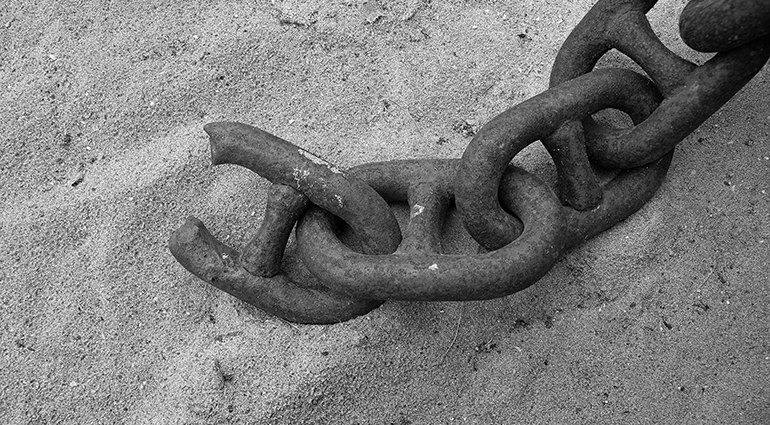From: Our Daily Bread

Read: Ephesians 1:3–14 | Bible in a Year: 1 Kings 8–9; Luke 21:1–19
In him we have redemption through his blood, the forgiveness of sins. Ephesians 1:7
We found our visit to Christ Church Cathedral in Stone Town, Zanzibar, deeply moving, for it sits on the site of what was formerly the largest slave market in East Africa. The designers of this cathedral wanted to show through a physical symbol how the gospel breaks the chains of slavery. No longer would the location be a place of evil deeds and horrible atrocities, but of God’s embodied grace.
Those who built the cathedral wanted to express how Jesus’s death on the cross provides freedom from sin—that which the apostle Paul speaks of in his letter to the church at Ephesus: “In him we have redemption through his blood” (Ephesians 1:7). Here the word redemption points to the Old Testament’s notion of the marketplace, with someone buying back a person or item. Jesus buys back a person from a life of slavery to sin and wrongdoing.
In Paul’s opening words in this letter (vv. 3–14), he bubbles over with joy at the thought of his freedom in Christ. He points, in layer after layer of praise, to God’s work of grace for us through Jesus’s death, which sets us free from the cords of sin. No longer do we need to be slaves to sin, for we are set free to live for God and His glory.
Lord God, through the death of Your Son, You have given us life forever. Help me to share this gift of grace with someone today.
Jesus redeems us from the slavery of sin.







